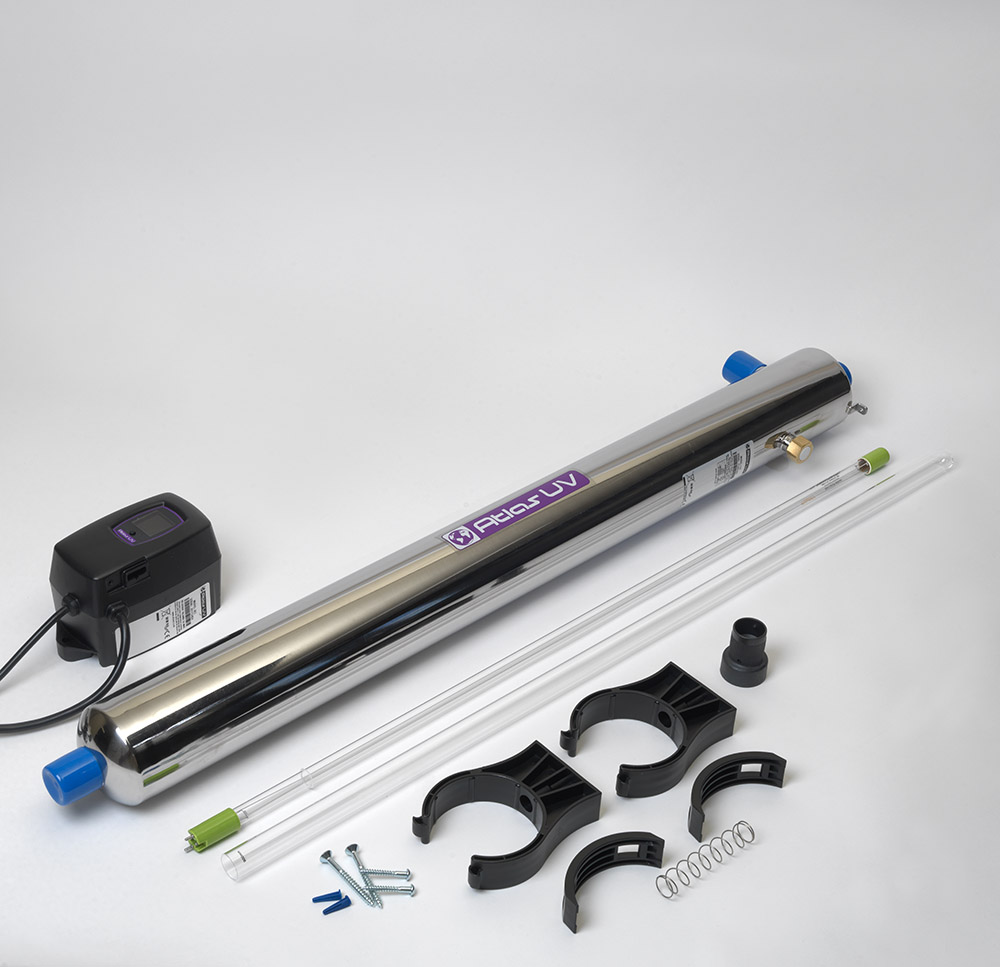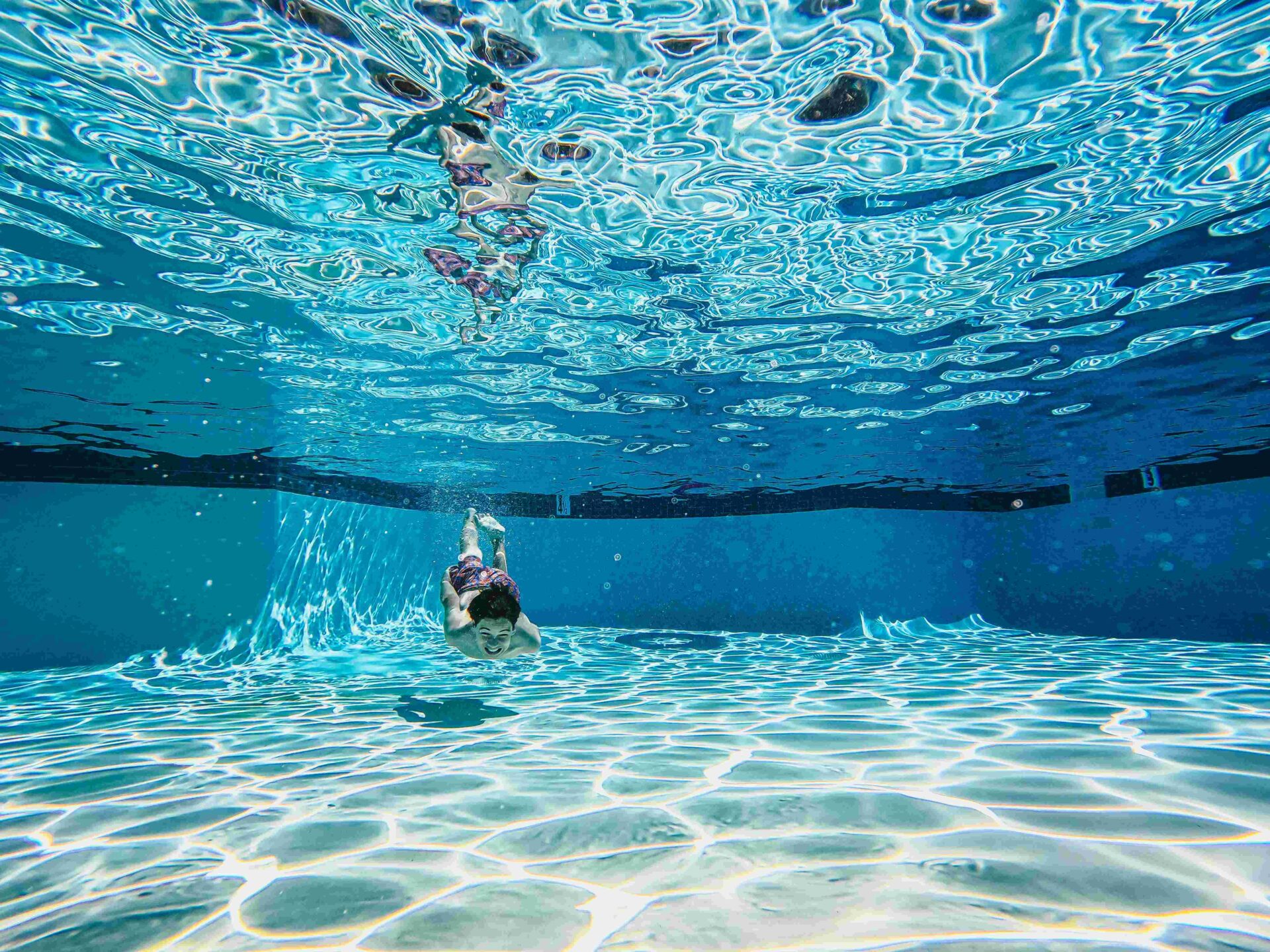What is the difference between UV versus chlorine for water treatment?
Traditional methods of water treatment, such as chlorine disinfection, have long been used to eliminate harmful microorganisms from water. However, with advancements in technology, alternatives like UV (ultraviolet) disinfection have gained popularity. Here we compare UV versus chlorine as a method for water treatment, exploring its effectiveness, environmental impact, and safety considerations.
UV versus chlorine for water treatment
1. Effectiveness of disinfection
Chlorine treatment has been the cornerstone of water purification for decades. It effectively kills bacteria, viruses, and other pathogens by oxidizing their cell walls and disrupting their metabolic processes. However, chlorine can produce harmful byproducts, such as trihalomethanes, when it reacts with organic matter present in water. Long-term exposure to these byproducts has been associated with health risks.
“Trihalomethanes (THMs) are the result of a reaction between the chlorine used for disinfecting tap water and natural organic matter in the water. At elevated levels, THMs have been associated with negative health effects such as cancer and adverse reproductive outcomes.”
Source: National Library of Medicine
UV disinfection, on the other hand, offers an efficient and chemical-free method of water treatment. It works by emitting ultraviolet light that damages the genetic material of microorganisms, preventing them from reproducing. UV treatment is particularly effective against bacteria, viruses, and protozoa. Unlike chlorine, UV treatment doesn’t introduce chemicals into the water, reducing the risk of harmful byproducts. Additionally, UV treatment doesn’t alter the taste, colour, or odour of water, which can be an issue with chlorine-treated water.
“UV disinfection is now an established primary disinfection process that is recognised to be an effective treatment against a range of waterborne pathogens, including certain chlorine resistant pathogens (e.g. Cryptosporidium)…”
Source: CIWEM
2. Environmental impact
One of the primary concerns with traditional chlorine treatment is its environmental impact. Chlorine reacts with organic matter in water to form disinfection byproducts, which can find their way into the environment and have negative effects on aquatic ecosystems. These byproducts are known to be toxic to aquatic life and can persist in water bodies for extended periods.
UV disinfection, on the other hand, has a lower environmental impact. It doesn’t introduce any chemicals into the water, eliminating the risk of harmful byproduct formation. UV treatment systems consume electricity to produce UV light, but this energy consumption is relatively low compared to the energy-intensive processes involved in chlorine production and distribution.
3. Safety considerations
Safety is a critical aspect when it comes to water treatment methods. Chlorine is a potent disinfectant, but it poses risks to both human health and the environment. Improper handling or accidental releases of chlorine can lead to respiratory problems, skin irritation, and other health issues for humans.
“Minor exposures may result in a burning sensation of the eyes and throat. More substantial exposure may cause coughing or breathing difficulties. Exposure to high concentrations of chlorine gas can damage the lungs and airways; this may cause a build-up of fluid in the lungs which can be fatal.”
Source: UK Government
Furthermore, chlorine transportation and storage present hazards due to its corrosive and potentially explosive nature.
Considering UV versus chlorine, UV disinfection is a safer alternative in many respects. As it doesn’t involve the use of chemicals, the risk of accidental releases or exposure is significantly reduced. UV treatment also doesn’t create harmful disinfection byproducts, eliminating the need to manage and mitigate their potential effects on human health and the environment. However, it’s important to note that direct exposure to UV light can be harmful to human skin and eyes, so proper precautions must be taken during the installation and maintenance of UV treatment systems.
UV treatment offers several advantages
In the comparison between UV disinfection treatment and the traditional chlorine method for water treatment, it’s clear that UV treatment offers several advantages. It is highly effective at eliminating harmful microorganisms without introducing chemicals into the water. The lower environmental impact of UV treatment, along with reduced safety risks, makes it an attractive choice for water purification in various settings.
While traditional chlorine treatment has served us well over the years, the drawbacks associated with disinfection byproducts and safety concerns cannot be ignored. As technology continues to evolve, embracing innovations like UV disinfection can lead to safer, more efficient, and environmentally friendly water treatment processes.
As communities strive to provide clean and safe drinking water to their residents, the choice between UV disinfection and chlorine treatment becomes pivotal. Ultimately, the decision should consider a holistic approach that considers factors such as effectiveness, environmental impact, and safety considerations. UV disinfection emerges as a promising solution that aligns with the growing need for sustainable and health-conscious water treatment methods.
If you are looking at adding a UV system to your home then have a look at the products that we offer. If you have any questions we have a helpful team waiting for your call to be able to advise and guide you to the right product.
Contact Details: Phone: 01480 355 446 Email: info@uvwaterfilter.co.uk
It might be helpful to explore our informative FAQ section and ‘How to’ instructional video segment for additional support.

Atlas UV Units
A UV (ultraviolet) unit is commonly used in water treatment systems for domestic homes to disinfect and purify water. The UV unit serves as an effective way to kill or inactivate harmful microorganisms, including bacteria, viruses, and parasites, without the use of chemicals like chlorine.
Atlas UV Units are designed to provide low-cost, chemical-free disinfection solutions. See our available range below.

